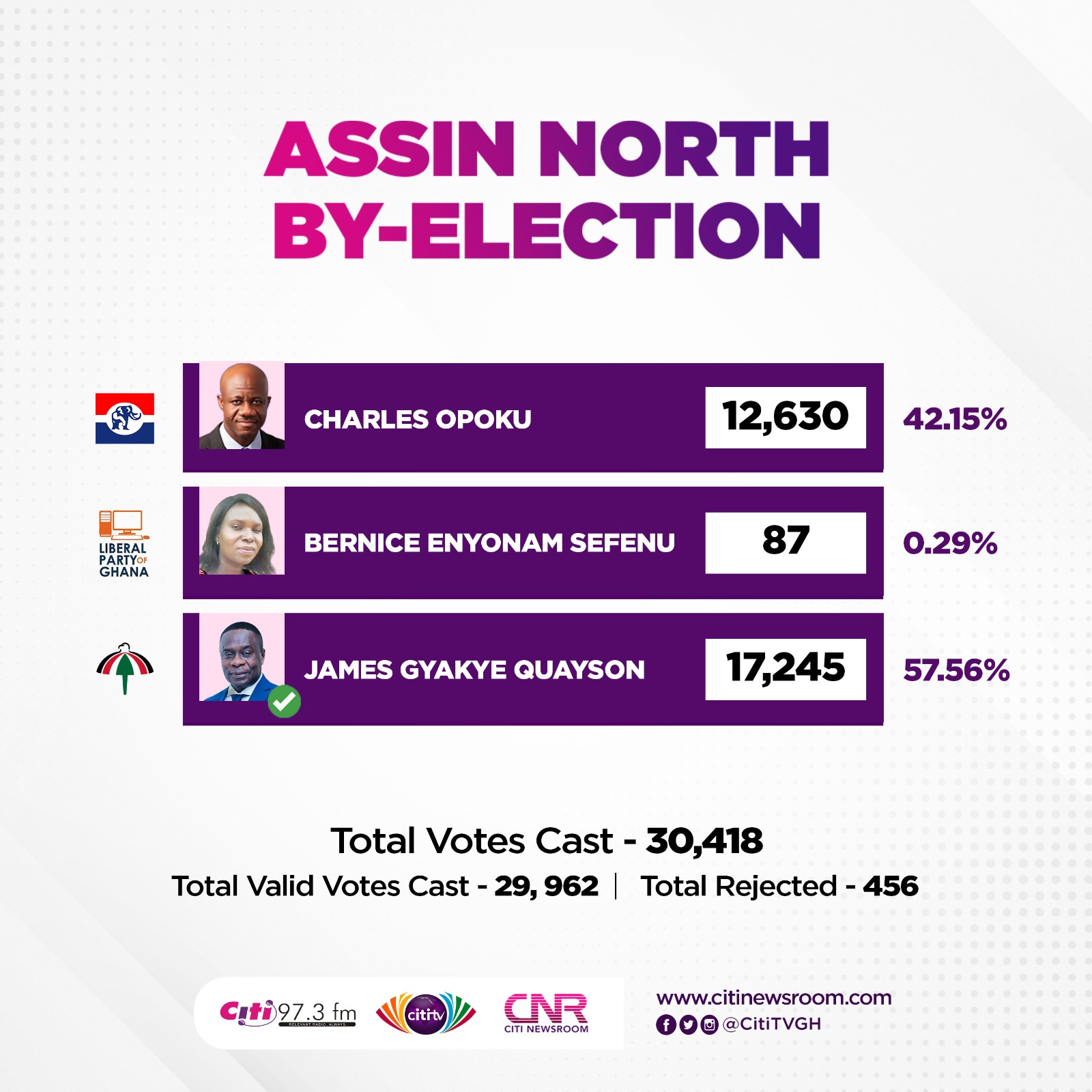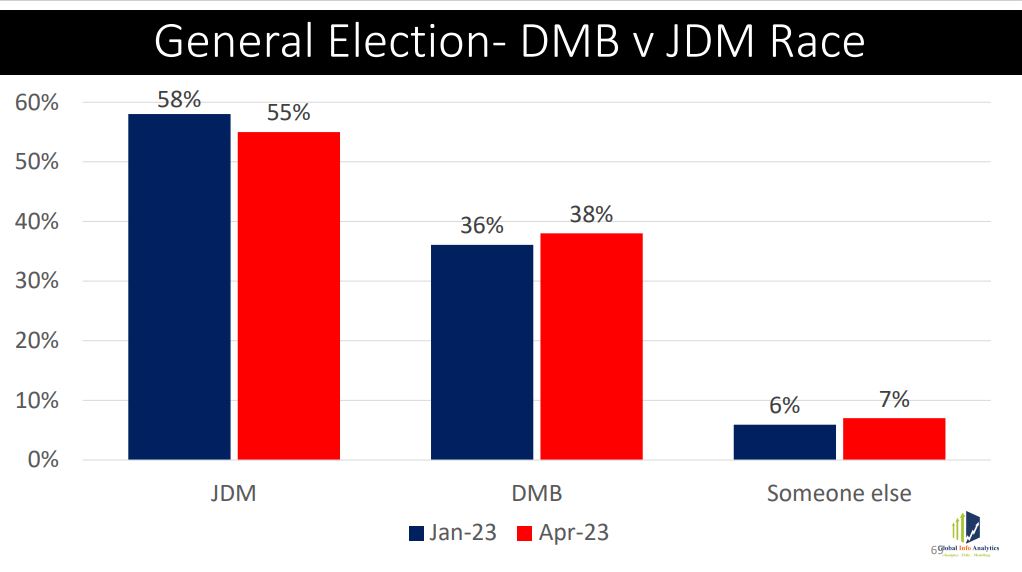Dr. Mahamudu Bawumia, Ghana’s Vice-President, has gained recognition as one of the most active and pragmatic Vice-Presidents since the country’s 4th Republican democracy.
He is credited by his supporters for leading the New Patriotic Party (NPP) to an impressive victory in the 2016 national elections, which resulted in the party taking over the government from the popular National Democratic Congress led by former President John Mahama who doubles as the NDC’s flagbearer heading into the 2024 national elections in Ghana.
Dr. Bawumia’s understanding of economics, backed by his PhD from Simon Fraser University in Canada with a specialization in macroeconomics, international economies, and monetary economics, as well as his extensive experience in monetary policy during his tenure as Deputy Governor of Ghana’s central bank, has garnered admiration from his party members and swing voters alike.
Having been involved in front-line national politics for over 16 years, Dr. Bawumia’s journey from a civil servant serving as Deputy Governor of the Bank of Ghana responsible for monetary policy and financial stability to becoming a Resident Representative for the African Development Bank Group’s operations in Zimbabwe, and finally becoming Ghana’s Vice President, has been an intriguing one. Among Ghana’s centre-right political followers, he is hailed as the “Digital Messiah.” However, some view him as an economic disruptor.
Now, Ghana’s Vice President aspires to become President. After filing his nomination form, he expressed to enthusiastic party supporters that his rapid rise within the party was earned through loyalty, sacrifice, hard work, and dedication.
He stated, “I am not afraid of hard work. In fact, I enjoy it. My life experiences have taught me that honesty and hard work pay off. I worked diligently for H.E. President Kufuor as Deputy Governor at the Bank of Ghana, and I have brought the same qualities to my role as Vice President, assisting President H.E. Nana Akufo-Addo in achieving his vision.”
“Together, we initiated the process of transforming Ghana into a country ready for the fourth Industrial Revolution. As Vice President, I have brought honesty, hard work, dedication, and discipline to my role.”
For some context, it is worth noting that it took the current President, Nana Akufo-Addo some 18 years since his first shot at the Presidency to reach the highest office in the country, during which period he built an impressive political career as a Member of Parliament, Attorney General, and Minister responsible for leading Ghana’s Foreign Policy.
The waiting years for his leading contender in the NPP Presidential primaries Alan Kwadwo Kyerematen to make attempts at the Presidency is also in the region of some 17 years.
But Dr. Mahamudu Bawumia will be hoping to take over from his boss in his first attempt as his party gears for the 2024 national election in a campaign unofficially tagged by the party as “breaking the 8.”
Since the inception of the Fourth Republic, no political party has won three consecutive Presidential elections. However, Dr. Mahamudu Bawumia and his supporters believe it is possible. This belief also serves as their official campaign mantra. They argue that Ghana needs a robust implementation of “Bawunomics” for the next phase of its economic development.
So, what exactly is Bawunomics?
Bawunomics are the economic ideologies of Ghana’s Vice-President. It advocates for superior macroeconomic understanding tailored to meet the needs of a country like Ghana while emphasizing fiscal discipline in the management of public finances to reduce bank lending rates.
Bawunomics also aims to drive industrialization and support the local business sector by providing incentives to the private sector to take on a significant role in infrastructure development and other services that were previously primarily government-provided.
Ghana’s $2 billion Sinohydro deal, the recently much criticized Gold-for-oil policy to address the country’s fuel price hike problem, and an ambitious digitalization drive are widely regarded as products of “Bawunomics.”
Why is the ‘Jubilee House’ endorsing Bawumia and his track record?
There is no doubt that Bawumia enjoys the support of a majority of the NPP Parliamentary candidates and appointees heading into the party’s internal Presidential primaries. He also appears to have the backing of the Jubilee House, as several senior Jubilee staffers have actively engaged in his campaign.
The government’s endorsement was most evident when around 80 Members of Parliament accompanied him to a festival celebration in the NPP’s stronghold in the Ashanti Region.
Within the NPP, it is widely believed that the Vice-President is the most capable candidate to continue and extend the legacy of President Nana Akufo-Addo, although he has emphasized his intention to be his own man after submitting his nomination forms. Hence, the tacit support from the Presidency.
“I also have my own vision for Ghana. I believe it is time to take Ghana to the next level by building upon the foundations we have established so far,” he stated in a speech after obtaining his nomination forms.
The fiercely contested NPP Presidential Primaries in 2007 and 2011 between the former Trade Minister and Presidential aspirant Alan Kyerematen and President Nana Akufo-Addo, which led to the former resigning from the party, has often been criticized by Alan Kyerematen’s opponents.
A survey conducted in June this year by Global Info Analytics and Citi TV/Citi FM among New Patriotic Party delegates revealed that the Vice President, Dr Mahamudu Bawumia, leads the former Trade and Industry Minister, Alan Kwadwo Kyerematen and MP for Assin Central, Kennedy Ohene Agyapong for the race to lead the NPP in 2024.
Dr Bawumia leads with 34.8% of the votes, followed by Kyerematen with 27.9% and Kennedy Agyapong, 12.5%.

The poll however predicted that in a case of a run-off between the two leading candidates, the results could go the other way.The recent by-elections in Kumawu in the Ashanti Region, following the sudden passing of the sitting MP Philip Basoah, and in Assin North due to a highly disputed dual citizenship case, provide insights into the mindset of Ghanaian voters heading into the 2024 elections. Both elections had their unique dynamics.
The NPP comfortably secured victory in the Kumawu seat, which has always been a safe seat for them. The NDC argued that an analysis of the numbers indicated a rise in their votes compared to the 2020 elections, while also suggesting a decline in the NPP’s popularity in their stronghold.
Assin North, according to pollsters and political strategists, offered a more balanced assessment of the government’s approval and popularity ratings among the voting populace leading up to the 2024 elections. It is considered a swing seat, with President Nana Akufo-Addo winning the 2020 Presidential election by a narrow margin while the parliamentary election went to the NDC’s James Gyakye Quayson.
When this scenario occurs in Ghanaian politics, it is often referred to as “Skirt and Blouse” voting.
Mr. James Gyakye Quayson recently contested the Assin North By-Election on June 27, 2023, and won convincingly despite predictions of a close race by the Global Info Analytics poll. The high turnout of 74% in the by-election is noteworthy.

The big news from the two recent by-elections is the potential turnout problem to be faced by the NPP as a party. The incumbent party experienced a reduction in total votes. In the Kumawu by-election, the NDC increased their votes by 1,284, while the NPP’s votes only rose by 304. This should raise concerns for the current government. A similar trend was observed in Assin North, where the NPP candidate’s vote tally decreased by a significant 1,573. This is not a positive sign for a party seeking to secure an 8th term.
The NDC argues that an analysis of the numbers indicated a rise in their votes compared to the 2020 elections, while also suggesting a decline in their popularity for the NPP.
The voter turnout for the Kumawu by-election was however a problem for the NPP, with only 44.89% showing up to vote. The consequences will be dire if this trend of a low turnout is replicated in many of their other strongholds like Kumawu. In contrast, Assin North had a voter turnout of 74%.
The results of the Assin North By-Election, which generated nationwide interest, have been described by some political commentators as a rejection of the NPP’s tenure in government. The country’s return to the IMF for its 17th bailout, a rising cost of living crisis exacerbated by high fuel prices, a volatile exchange rate leading to the depreciation of the cedi, and excessive taxation negatively impacting the business community are factors contributing to this sentiment.
While the results of these two by-elections may not completely reflect the national political landscape, they do provide some indication.
Will Ghanaians embrace Bawunomics and entrust the country’s future to Dr. Mahamudu Bawumia in the next four years? Only time will tell. A poll conducted by Global Info Analytics shows that if he wins the NPP Presidential election, he still trails behind the NDC’s John Dramani Mahama. In April of this year, 55% of respondents in a poll supported Former President John Mahama, while 38% of Ghanaians opted for Vice-President Mahamudu Bawumia to lead the country.

Regardless of whether people love or loathe him, the Vice-President has developed a cult following and is admired by some of his opponents. Many are endeared to him by his humanitarian works, his generosity toward those in need, and his apparent humility. However, will these qualities be enough to win the trust of Ghanaians? Only time will tell.
An effective campaign to win over any disenchanted sections of the party base will be crucial for success in the upcoming general election.
Additionally, Dr. Bawumia faces the burden of proving that he is not simply being pushed forward as President Nana Akufo-Addo’s successor due to his perceived subservience. He will need to assert his leadership and demonstrate that he is an independent and capable leader in his own right.
Source: citifmonline

Comments